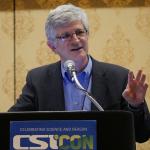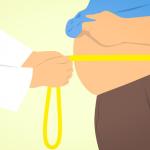Taxes alter consumer behavior. The more something is taxed, the less of it we get. Knowing this, governments use taxes to encourage or discourage behavior.
public health
Journalists are an easily spooked bunch. Where scientists see a problem in need of a solution, the press often sees an unmitigated crisis that can only be solved by fundamentally changing our way of life.
Join Cameron English and Dr. Chuck Dinerstein on Episode 72 of the Science Dispatch podcast as they explore the potential threat of microplastics:
I spoke with John Batchelor on-air recently about the important topic of the ongoing measles outbreak in the U.S.
Vaccine expert Dr. Paul Offit joins Cameron English and Dr. Chuck Dinerstein on Episode 67 of the Science Dispatch podcast to answers these questions and discuss his new book:
Join Cameron English and Dr. Chuck Dinerstein on Episode 66 of the Science Dispatch podcast as they examine the growing problem of scientific fraud:
Join Cameron English and Dr. Chuck Dinerstein on Episode 64 of the Science Dispatch podcast as they examine the health effects of porn use:
As the world gets fatter, we’re putting less effort into effectively preventing and treating obesity. The evidence of this horrifying correlation is everywhere.
National Public Radio (NPR) is concerned about a relatively small group of men who abstain from internet porn.












